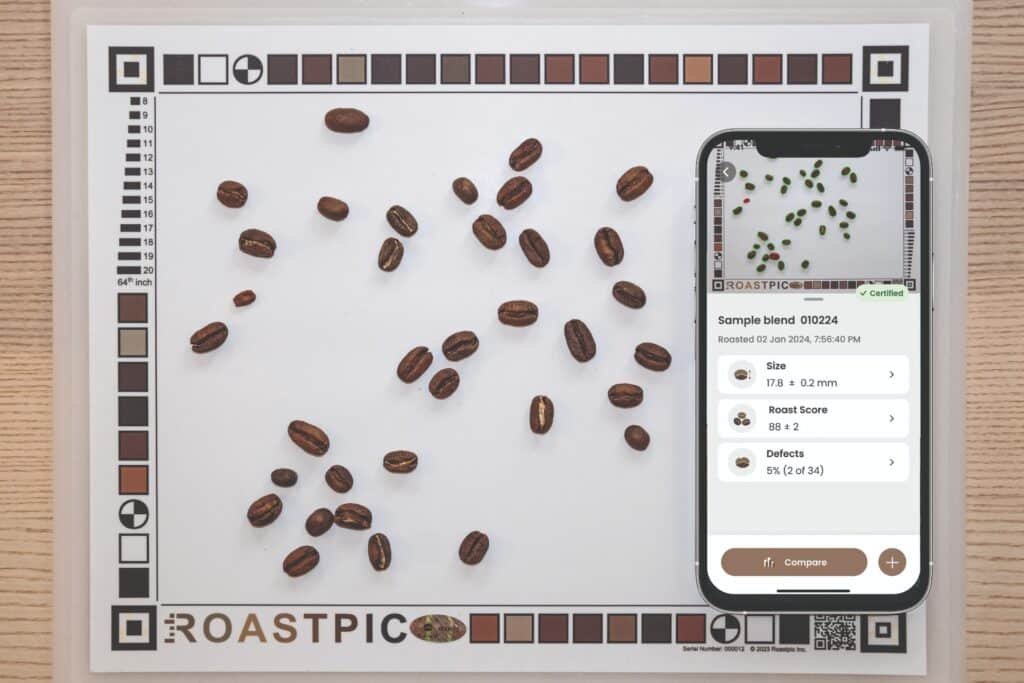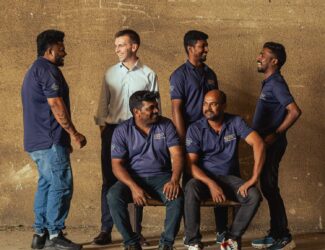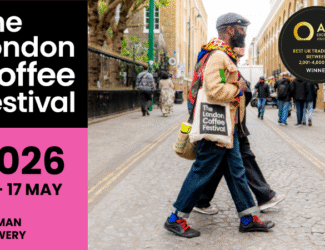
“Roastpic” is a new application that analyzes coffee samples in just 5 seconds
Professionals at every stage of the coffee supply chain devote a considerable amount of time to quality control. This involves ensuring the accurate selection of coffee beans and identifying defective types.
Professionals in the coffee supply chain spend countless hours focusing on quality control, ensuring the selection of the right coffee beans, choosing the correct types, and identifying defective beans.
Traditionally, and for decades, these tasks have been carried out manually. However, two students from the University of California, Davis, introduced a groundbreaking application called “Roastpic”, which uses a simple sheet, a camera-equipped phone, and just five seconds to analyze coffee samples.
“Roastpic,” a subsidiary of the University of California, Davis, was created by faculty members and students, launching an app of the same name. This app quickly provides comprehensive statistics on coffee samples by analyzing images captured via a camera phone.
\”We’ve ensured that the app can analyze the entire coffee sample using just one photo,” says Zhuoheng Li, co-founder and backend software engineer at Roastpic. “This technology is applicable worldwide.”
To conduct the analysis, roasters first take a sample of coffee – whether green, roasted, or ground – and place it on the provided Roastpic Photosheet, which includes individual QR codes for data collection, color schemes, sample color squares to compensate for potential lighting variations, and measurement scales.
Roasters then take a photo of the chart with the coffee bean using a camera phone and upload it directly to the app, which generates the data in just five seconds.
To verify the accuracy of the results provided by the “Roastpic” application, students from the University of California, Davis, manually measured green and roasted beans. Their results showed nearly identical outcomes, although they were achieved over a much longer period.
The “Roastpic” application allows users to determine whether the coffee meets the required and targeted specifications. Additionally, the app will soon introduce a comparison feature, enabling users to quickly compare a given sample with a defined ideal sample.
The app uses artificial intelligence to identify defects when examining coffee samples. Non-defective beans are displayed in the app with a green border, allowing users to click on each bean to view its statistics, including average height and color gradient. Defects in the batch, such as misshapen beans or non-coffee materials, are highlighted with red borders. The percentage of defects in the batch can also be viewed.
Mengqi Cao, Head of Design at “Roastpic,” designed the app to ensure that the roaster’s experience is as important as retrieving statistical data.
Roasters can classify samples by origin and type for comparison with previous roasts, ensuring consistency.
“We’re focusing on a user-centric app design, where users only need to select the type of coffee before taking a photo,” says Li.
The idea for the “Roastpic” app emerged in late 2021 during Li’s participation in Professor Bill Ristenpart’s Coffee Design class at the University of California, Davis.
“I saw one of my students pouring hot water into a cup instead of coffee,” recalls Ristenpart. “When I asked him why, he said he learned it during his Q certification in 2020.”
The Q Grade certification, awarded by the Coffee Quality Institute, recognizes skilled professionals in coffee sensory evaluation. It was unlikely for a student to achieve this certification before completing his studies.
Xiao Liu, another certified Q Grader majoring in computer science at the University of California, Davis, joined Li when Ristenpart presented his vision for the app.
“I’ve had the idea for the ‘Roastpic’ app in my mind since 2015 when I saw people still using shakers to measure bean size and thought we should be able to do the same work with a photo,” says Ristenpart.
“It wasn’t until I had two Q Grader-certified computer science majors right in front of me that I thought it could be done.”
Through “Roastpic’s” instant statistical feedback, Ristenpart aims to simplify quality control in the coffee industry and reduce manual labor.
- The “Roastpic” app will be available in three versions:
The first version, accessible for free, primarily provides approximate data for coffee enthusiasts.
The second version, Premium, offers registered Roastpic Photosheets for precise data.
The third version, Professional, recommended for large businesses, integrates with Fabscale dashboards to ensure comprehensive quality assurance and verification.
The “Roastpic” Free and Premium versions will debut at the Specialty Coffee Expo in Chicago in April 2024, with the Professional version scheduled for release in the third quarter of 2024.
“We’ll give attendees an overview of the product and how to purchase it,” says Gökhan Adamhanoglu, CEO of Fabscale. “This is a new venture for Probat, and we’re excited to present it in Chicago.”



